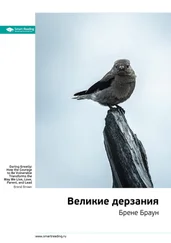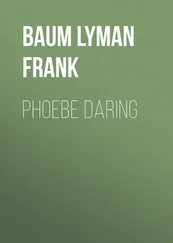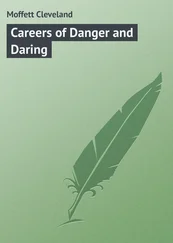The chicken-or-the-egg dilemma comes into play when we think about the investment and leap that people in relationships have to make before the building process ever begins. The teacher didn’t say, “I’m not buying a jar and marbles until I know that the class can collectively make good choices.” The jar was there on the first day of school. In fact, by the end of the first day, she had already filled the bottom with a layer of marbles. The kids didn’t say, “We’re not going to make good choices because we don’t believe you’ll put marbles in the jar.” They worked hard and enthusiastically engaged with the marble jar idea based on their teacher’s word.
One of my favorite scholars in the field of relationships is John Gottman. He’s considered the country’s foremost couples researcher because of the power and accessibility of his pioneering work on how we connect and build relationships. His book The Science of Trust: Emotional Attunement for Couples is an insightful and wise book on the anatomy of trust and trust building. In an article on the University of California–Berkeley’s “Greater Good” website (www.greatergood.berkeley.edu), Gottman describes trust building with our partners in a manner totally consistent with what I found in my research and what Ellen and I call the marble jar:
What I’ve found through research is that trust is built in very small moments, which I call “sliding door” moments, after the movie Sliding Doors . In any interaction, there is a possibility of connecting with your partner or turning away from your partner.
Let me give you an example of that from my own relationship. One night, I really wanted to finish a mystery novel. I thought I knew who the killer was, but I was anxious to find out. At one point in the night, I put the novel on my bedside and walked into the bathroom.
As I passed the mirror, I saw my wife’s face in the reflection, and she looked sad, brushing her hair. There was a sliding door moment.
I had a choice. I could sneak out of the bathroom and think, I don’t want to deal with her sadness tonight; I want to read my novel. But instead, because I’m a sensitive researcher of relationships, I decided to go into the bathroom. I took the brush from her hair and asked, “What’s the matter, baby?” And she told me why she was sad.
Now, at that moment, I was building trust; I was there for her. I was connecting with her rather than choosing to think only about what I wanted. These are the moments, we’ve discovered, that build trust.
One such moment is not that important, but if you’re always choosing to turn away, then trust erodes in a relationship—very gradually, very slowly.
When we think about betrayal in terms of the marble jar metaphor, most of us think of someone we trust doing something so terrible that it forces us to grab the jar and dump out every single marble. What’s the worst betrayal of trust you can think of? He sleeps with my best friend. She lies about where the money went. He/she chooses someone over me. Someone uses my vulnerability against me (an act of emotional treason that causes most of us to slam the entire jar to the ground rather than just dumping the marbles). All terrible betrayals, definitely, but there is a particular sort of betrayal that is more insidious and equally corrosive to trust.
In fact, this betrayal usually happens long before the other ones. I’m talking about the betrayal of disengagement. Of not caring. Of letting the connection go. Of not being willing to devote time and effort to the relationship. The word betrayal evokes experiences of cheating, lying, breaking a confidence, failing to defend us to someone else who’s gossiping about us, and not choosing us over other people. These behaviors are certainly betrayals, but they’re not the only form of betrayal. If I had to choose the form of betrayal that emerged most frequently from my research and that was the most dangerous in terms of corroding the trust connection, I would say disengagement.
When the people we love or with whom we have a deep connection stop caring, stop paying attention, stop investing, and stop fighting for the relationship, trust begins to slip away and hurt starts seeping in. Disengagement triggers shame and our greatest fears—the fears of being abandoned, unworthy, and unlovable. What can make this covert betrayal so much more dangerous than something like a lie or an affair is that we can’t point to the source of our pain—there’s no event, no obvious evidence of brokenness. It can feel crazy-making.
We may tell a disengaged partner, “You don’t seem to care anymore,” but without “evidence” of this, the response is “I’m home from work every night by six P.M. I tuck in the kids. I’m taking the boys to Little League. What do you want from me?” Or at work, we think, Why am I not getting feedback? Tell me you love it! Tell me it sucks! Just tell me something so I know you remember that I work here!
With children, actions speak louder than words. When we stop requesting invitations into their lives by asking about their day, asking them to tell us about their favorite songs, wondering how their friends are doing, then children feel pain and fear (and not relief, despite how our teenagers may act). Because they can’t articulate how they feel about our disengagement when we stop making an effort with them, they show us by acting out, thinking, This will get their attention.
Like trust, most experiences of betrayal happen slowly, one marble at a time. In fact, the overt or “big” betrayals that I mentioned before are more likely to happen after a period of disengagement and slowly eroding trust. What I’ve learned about trust professionally and what I’ve lived personally boils down to this:
Trust is a product of vulnerability that grows over time and requires work, attention, and full engagement. Trust isn’t a grand gesture—it’s a growing marble collection.
MYTH #4: WE CAN GO IT ALONE
Going it alone is a value we hold in high esteem in our culture, ironically even when it comes to cultivating connection. I get the appeal; I have that rugged individualism in my DNA. In fact, one of my very favorite break-up-kick-ass-no-one-can-hurt-me songs is Whitesnake’s “Here I Go Again.” If you’re a person of a certain age, I’d put money down that you’ve rolled down the window and defiantly sung: “And here I go again on my own. … Like a drifter I was born to walk alone. …” If Whitesnake isn’t your cup of tea, there are bootstrapping anthems in every imaginable genre. In reality, walking alone can feel miserable and depressing, but we admire the strength it conveys, and going it alone is revered in our culture.
Well, as much as I love the idea of walking alone down a lonely street of dreams, the vulnerability journey is not the kind of journey we can make alone. We need support. We need folks who will let us try on new ways of being without judging us. We need a hand to pull us up off the ground when we get kicked down in the arena (and if we live a courageous life, that will happen). Across the course of my research, participants were very clear about their need for support, encouragement, and sometimes professional help as they reengaged with vulnerability and their emotional lives. Most of us are good at giving help, but when it comes to vulnerability, we need to ask for help too.
In The Gifts of Imperfection, I write, “Until we can receive with an open heart, we are never really giving with an open heart. When we attach judgment to receiving help, we knowingly or unknowingly attach judgment to giving help.” We all need help. I know I couldn’t have done it without reinforcements that included my husband Steve, a great therapist, a stack of books a mile high, and friends and family members who were on a similar journey. Vulnerability begets vulnerability; courage is contagious.
Читать дальше
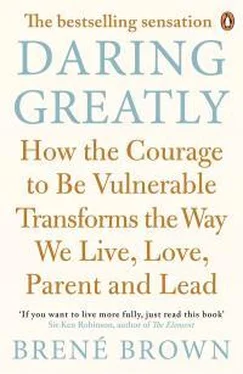


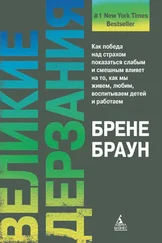


![Брене Браун - Вопреки. Как оставаться собой, когда всё против тебя [litres]](/books/436389/brene-braun-vopreki-kak-ostavatsya-soboj-kogda-v-thumb.webp)
